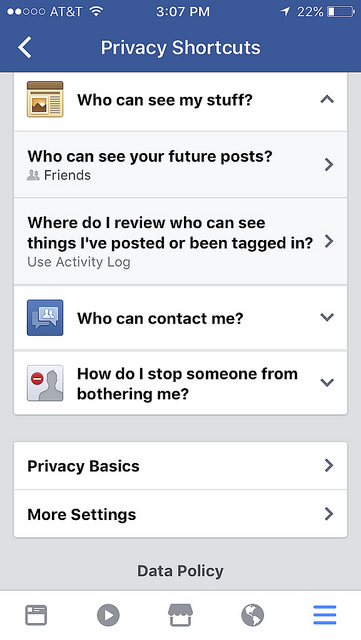Social media leads to excessive snooping
Facebook has privacy shortcuts that can help limit what users share.
April 18, 2017
Social media is great for staying in touch with friends and family – and for stalking, according to a 2011 study.
“Cyberstalking is now more common than face-to-face stalking,” according to the Guardian.
It’s easy these days to find what (or who) you’re looking for thanks to social media’s prominence in our everyday lives.
The paranoia is definitely real.
A Facebook friend of mine recently changed his last name on the site because he feared his dream college rejecting him after viewing the silly but well-intended photos and posts on his profile.
That begs the question: what dirt are schools really capable of digging up on their students?
In some senses, it is a valuable service for companies and schools to be able to vet potential employers or students through social media. However, they should resist taking everything they see at face value, since social media does not always provide a fair and accurate sense of a person.
Some may remark about how easy it is to find someone they just met, or joke about accidentally liking another person’s old post because they snooped too much, but it is a serious issue.
Instagram used to have a feature known as “photo map,” where people could post their location and see photos in proximity to each other. However, due to backlash about the ability for others to stalk users’ real-world locations, Instagram removed the feature back in December.
Sites like LinkedIn actually inform users who has viewed their profile, but even those settings can be altered. The feature perhaps works better for LinkedIn than other social media sites, because its helpful to know if potential employers are catching up on your accomplishments.
I’d advise readers to consider what they post online, and recognize that their profiles are never truly private and often don’t go away even if deleted. Social media should be about having fun and not hurting your chances of landing that new job or getting accepted to college.







































































